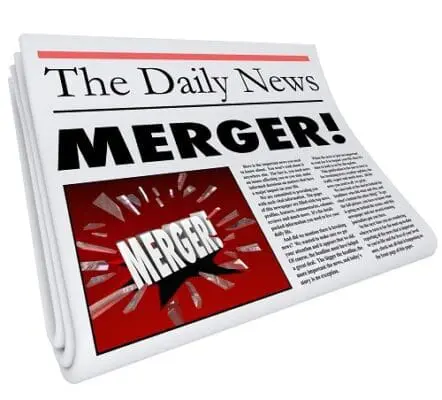
In baseball, it’s often said “you can’t tell the players without a scorecard.” What that means is that the lineup and roster changes so often that your favorite home team player may be here today and gone tomorrow.
In the business world, it’s gotten that way with companies and brands. Thanks to deregulation, major mergers and acquisitions have replaced or erased many long-time familiar names and created a host of new ones. And it’s not just big companies swallowing smaller ones. The smaller ones are gobbling up the big ones, too. Where once “too big to fail” was the buzzword of the day, now it may as well be “who’s next?”
The news is filled with daily stories of megamergers and superacquisitions. And why not? It makes for exciting copy and video clips. Here are just a few of the dozens of major mergers that happened in 2017:
- Pharmacy retailer CVS buys health insurance giant Aetna.
- Internet retailer Amazon takes over organic grocer Whole Foods.
- Cereal-maker General Mills grabs pet food manufacturer Blue Buffalo.
- Health insurer Cigna acquires pharmacy benefits manager Express Scripts.
- Magazine publisher Meredith absorbs media titan Time, Inc.
- Grocer Albertson buys competitor Rite Aid.
- Tech giant Broadcom acquires Qualcomm.
- These are just some of the more prominent.
Obviously there are scores more mergers – enough to fill this entire story, and maybe the next one, too. So there’s a lot of conjoining and getting together in the world of big business. How does a megamerger affect the small- or medium-sized business?
A small business isn’t usually going to be competing directly against a megabusiness. And a medium-sized one may occasionally go head-to-head with a global titan. Many small- and medium-sized businesses have carved a specialty niche in the marketplace, one that is not well served by one of the giants. However, despite the apparent lack of much of connection, megamergers do often negatively impact small and medium-sized business and their bottom lines. For this reason, the smart ones scan the daily headlines looking for impeding such mergers so they can plan for the aftermath on their operations.
Related Article: It’s Small Companies, Not Big Business, That Create Jobs
What is the potential negative impact? The companies have often carved a niche and become suppliers to the corporate Goliaths. After the merger, the acquiring company frequently makes decisions on vendor redundancies. If the acquiring company is more comfortable with its own supplier, it will opt to keep it rather than switch to the vendor of the purchased company. That, of course, means the redundant vendor is now out of a potentially lucrative contract post-merger. If the lost contract was large enough, it could even kill a small or even a medium-sized business.
Layoffs at the merged big company following the acquisition also could affect future business. If the small or medium-sized business has established a good working relationship with a buyer, the smaller outfit could lose a champion if that buyer is later laid off due to the merger. When a contract comes up for renewal or the smaller company wants to expand sales, it may have to deal with someone either unfamiliar with them or even potentially hostile towards them, jeopardizing a valuable account.
Another potential trouble spot for a smaller vendor company dealing with a post-merger megafirm is getting paid for its services. Where the small company’s first client may have paid invoices every 30 or 60 days, the new supersized giant may decide it will only pay every 90 to 120. This can put a serious crimp on a smaller firm’s cash flow and ability to operate.
Then there is the other side of the coin. Rather than the large, merged company being a customer of the smaller firm, it’s the opposite – the small company relies on the megacorporation to supply it with a valuable component. Combining two companies of any size is a long, difficult process, fraught with confusion. If the large company suffers any inefficiency after a merger, such as in shipping out product or customer service, this could negatively impact the smaller company. Perhaps the new supply chain is not well thought out and as a result, the small company does not receive a needed shipment in time to complete its own manufacturing or customer service process. It could then face angry clients and lose business of its own due to now suddenly unreliable big business suppliers.
So, what potential megamergers and acquisitions lurk on the horizon? Some news sources say Salesforce will look to buy software company Mulesoft and Amazon is eyeing e-commerce retailer Wayfair. However, predicting the weather is often more accurate than trying to figure out the next corporate conjoining. Mergers and acquisitions is a fast-paced topic, and what could be a potential deal today could be reduced to an unfounded rumor tomorrow.
Much like the baseball scorecard mentioned at the beginning of this article, to keep track of all of them would require a stack of blank scorecards, a school’s worth of sharpened pencils and maybe even a crystal ball.
- What Is An Invoice Factoring Broker? - July 17, 2022
- 7 Tips for Buying Out a Business Partner or Majority Owner - May 13, 2022
- 6 Leadership Secrets Every Small Business Owner Should Know - December 9, 2021

